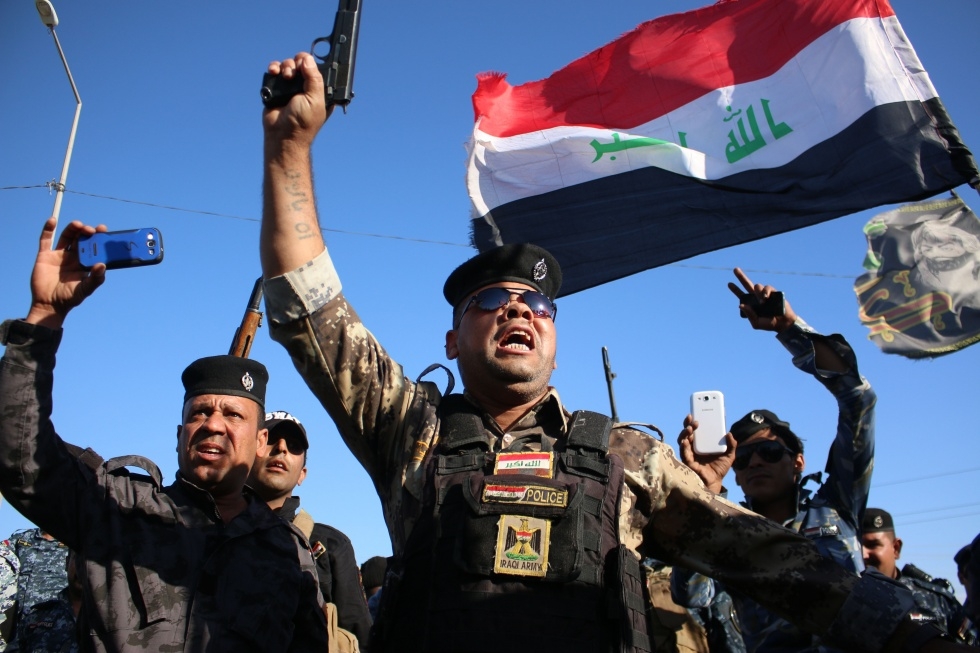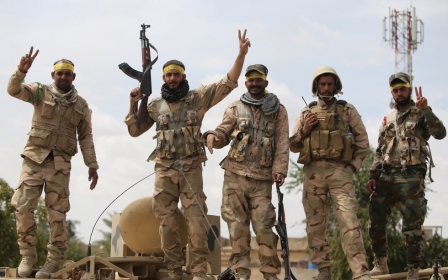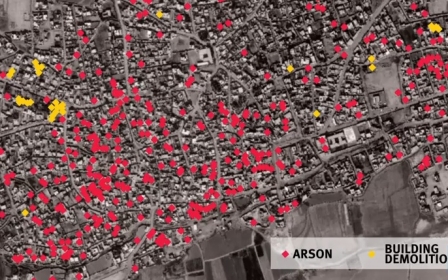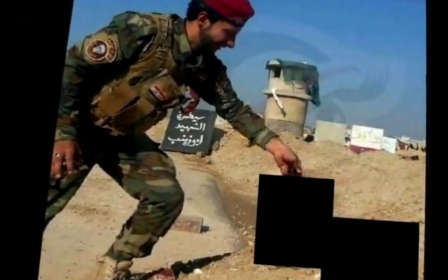ANALYSIS: Retaking all of Iraq's Anbar out of reach for now

Baghdad has announced that its next battle against the Islamic State (IS) group will be to retake Anbar province, but analysts say entrenched militants and limited Iraqi forces put a full reconquest out of reach for now.
Anbar is by far Iraq's largest province, sharing a border with IS-held territory in Syria, and has historically been a difficult area to control.
Iraqi security forces and allied Shiite militias are on a high after retaking most of Salaheddin province and its capital Tikrit in recent weeks, but those victories will not be easy to replicate.
"Anbar differs from Tikrit and Salaheddin more broadly because IS is much more entrenched there," said Kirk Sowell, publisher of the Inside Iraqi Politics newsletter.
Militant fighters had a presence in Anbar long before the June 2014 offensive that saw the government lose around a third of the country to IS.
"This will have to be a limited-goals campaign to be successful," Sowell said.
After recapturing Tikrit, some expected government and allied militia forces to continue their push towards Mosul, which is Iraq's second city and IS's main hub.
But Prime Minister Haider al-Abadi announced on 8 April that "our next stand and battle will be here in the land of Anbar to completely liberate it."
Anbar is a vast arid expanse traversed by the Euphrates River, stretching east from the Baghdad governorate to the western borders with Saudi Arabia, Jordan and Syria.
Its capital is the city of Ramadi, much of which is under IS control, while the militants hold all of the city of Fallujah, which lies between it and Baghdad.
Local knowledge key
Fighting has been relentless in the province in recent months but government forces have struggled to make major advances.
It took 10,000 US Marines to seize Fallujah from insurgents a decade ago and analysts agreed that retaking it now would be too big an ask for Iraqi forces.
"Anbar, and especially Fallujah, is like Asterix's village," said Victoria Fontan, a professor at American University Duhok Kurdistan, referring to an unconquerable town in the French comic book series.
The province is packed with experienced fighters and while some Sunni tribes have allied with the government, others are fighting alongside IS or sitting on the fence.
Local knowledge is seen as key to clawing back territory along the fertile strip lining the Euphrates, where IS has inflicted severe military setbacks to the police and army since last year.
"The Anbar operation is likely to be a Ramadi operation," said Michael Knights of the Washington Institute for Near East Policy.
"The key to controlling Ramadi is to control the Euphrates Valley palm groves and farmlands around the city. This is what the Iraqi security forces have consistently failed to do for over a year now," he said.
Fighting is ongoing on Anbar's eastern edge, where Iraqi regular forces on Tuesday launched their latest attempt to retake the Garma area, a 40-minute drive from Baghdad.
A military official from one of the countries in the US-led coalition battling IS said Iraqi forces were likely to stick to very specific objectives in a province where thousands of government fighters have perished since 2014.
'Deluded' thinking
"The Iraqi security forces will not clean Fallujah. Ramadi will be difficult and even Garma is not guaranteed," he said.
An army staff brigadier general who is a field commander in the ongoing operation in Garma said more intensive air support was needed to achieve any results.
"Cutting those supply lines with ground troops is impossible," he told AFP.
The US-led coalition, which also includes France, Britain and various Arab countries, carries out airstrikes almost daily in Anbar but IS has held its ground.
Abadi was on his first trip to the White House as prime minister this week seeking more arms and more strikes from Washington.
The question of who will wage the battle against IS remains contentious.
The involvement of Iran-backed Shiite militias in the province risks alienating some Sunni tribes.
"They are already active in the easternmost areas of Anbar, but I don't see major militia deployment otherwise," said Sowell.
Fontan meanwhile warned of the repercussions on Anbar's borders of a large operation against IS there, saying: "The front line will dissolve and asymmetric warfare will replace something much more predictable.
"They are deluded in thinking that they will take Anbar. The history of the province has shown that when you think it is over and pacified, it isn't," she said.
Middle East Eye propose une couverture et une analyse indépendantes et incomparables du Moyen-Orient, de l’Afrique du Nord et d’autres régions du monde. Pour en savoir plus sur la reprise de ce contenu et les frais qui s’appliquent, veuillez remplir ce formulaire [en anglais]. Pour en savoir plus sur MEE, cliquez ici [en anglais].




